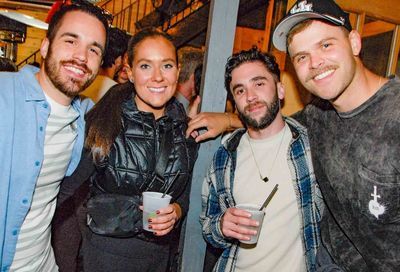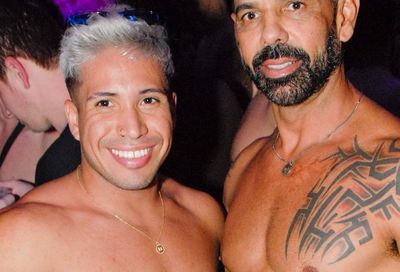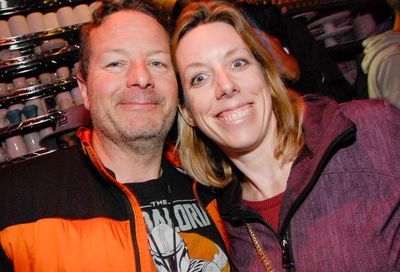DC’s Environmental Film Festival embraces an opportunity to reach a global audience
The 29th edition of DCEFF is making the most of virtual screenings

From a Mayan beekeeper battling Monsanto in Mexico, to a Black falconer from Southeast D.C. educating kids around the capital, the subjects and stories featured in the 29th edition of The Environmental Film Festival in the Nation’s Capital (DCEFF) epitomize the festival’s mission to broaden our understanding of that loaded word.
“We basically look at the environment as literally everything around you,” says DCEFF executive director Christopher Head. “Right now, of course, COVID is very much an environmental topic. Public health really could not be more of an environmental topic, from my point of view.” Public health was practically the only topic this time last year, when COVID lockdowns redefined everyone’s environment. Three days before its mid-March start, DCEFF 2020 had to cancel all live events.
“And that was a huge thing,” recalls Head. “We were one of the first D.C. organizations to cancel anything. Within minutes of us doing that, it was on the front page of The Washington Post, because they were compiling a list, because it was so new and so sudden. It felt a little uncharted for us. It obviously seems so different a world now, but in that moment, we weren’t sure if we were going to get pushback from people who were saying we were being too sensitive, too cautious. Of course, it was the right decision.”
With only days to secure permission from filmmakers to screen their work virtually, the festival also “did some last-minute recordings and some new Q&As, some live scheduling.” And, with just nine days preparation, says Head, “we presented our festival last year, which was just nuts and it was wildly successful. Over a hundred thousand people, unique IP addresses from around the world, from every continent, including Antarctica. So for a first virtual festival that was put together relatively quickly, we felt very, very good about it.”
This year, DCEFF staff and programmers, working remotely, had the advantage of time to plan for the circumstances. “We’ve been preparing for it to be virtual for literally months,” Head says. “We’re very confident with our event platform, which is Eventive. Everything is now streamlined. That was not the case last year, where it was spread out over different platform services. So we think we put together a really robust program.”
And now, thanks to the online presentation, “you can go to the communities that are featured in the films,” he points out. “It’s really been amazing to be able to, from D.C., just go into these communities directly and show these films and market [them] to people who are directly affected by them. It’s a whole new world in that way. Just incredible to be able to do that.”
The festival also has added some serious star power to its team of supporters. Jane Fonda recorded a welcome video posted on the DCEFF website, and will participate in a social media campaign for the fest. And, for the pre-release screening of Secrets of the Whales, co-presented by National Geographic, the film’s executive producer James Cameron recorded a special message congratulating director Brian Skerry on receiving this year’s Shared Earth Foundation Award for Advocacy.

DCEFF 2021 boasts a host of other DC and world premiere documentary features and shorts, including the local and online premiere of Sundance favorite Playing with Sharks, about diver and conservationist Valerie Taylor, who’s spent her career counteracting the deadly shark myths propagated by Jaws. “Sharks, just like any animal, deserve conservation efforts,” says Head.
Sharks, whales, birds, bees, wildfires, water crises, and nuclear engineers decommissioning power plants — all play a role in the festival’s diverse slate of over 100 films and in our environment. “We really want people to broaden how they perceive the environment,” says Head. “It’s a very easy argument to make. And I think that when people start experiencing the films and they hear the conversations around the films, they can start drawing connections between them. It’s been to our benefit to help the public conversation broaden how people perceive the environment, even in our tiny, tiny little way.”
DCEFF 2021 streams online March 18-21. Tickets for individual paid programs are $10, an all-access pass is $45, and a few selected programs and events are FREE. Most screenings will be available for the duration of the festival, except where noted. Please visit www.dceff.org.
Read More:
Touchstone Gallery’s dynamic virtual exhibitions
Support Metro Weekly’s Journalism
These are challenging times for news organizations. And yet it’s crucial we stay active and provide vital resources and information to both our local readers and the world. So won’t you please take a moment and consider supporting Metro Weekly with a membership? For as little as $5 a month, you can help ensure Metro Weekly magazine and MetroWeekly.com remain free, viable resources as we provide the best, most diverse, culturally-resonant LGBTQ coverage in both the D.C. region and around the world. Memberships come with exclusive perks and discounts, your own personal digital delivery of each week’s magazine (and an archive), access to our Member's Lounge when it launches this fall, and exclusive members-only items like Metro Weekly Membership Mugs and Tote Bags! Check out all our membership levels here and please join us today!





















